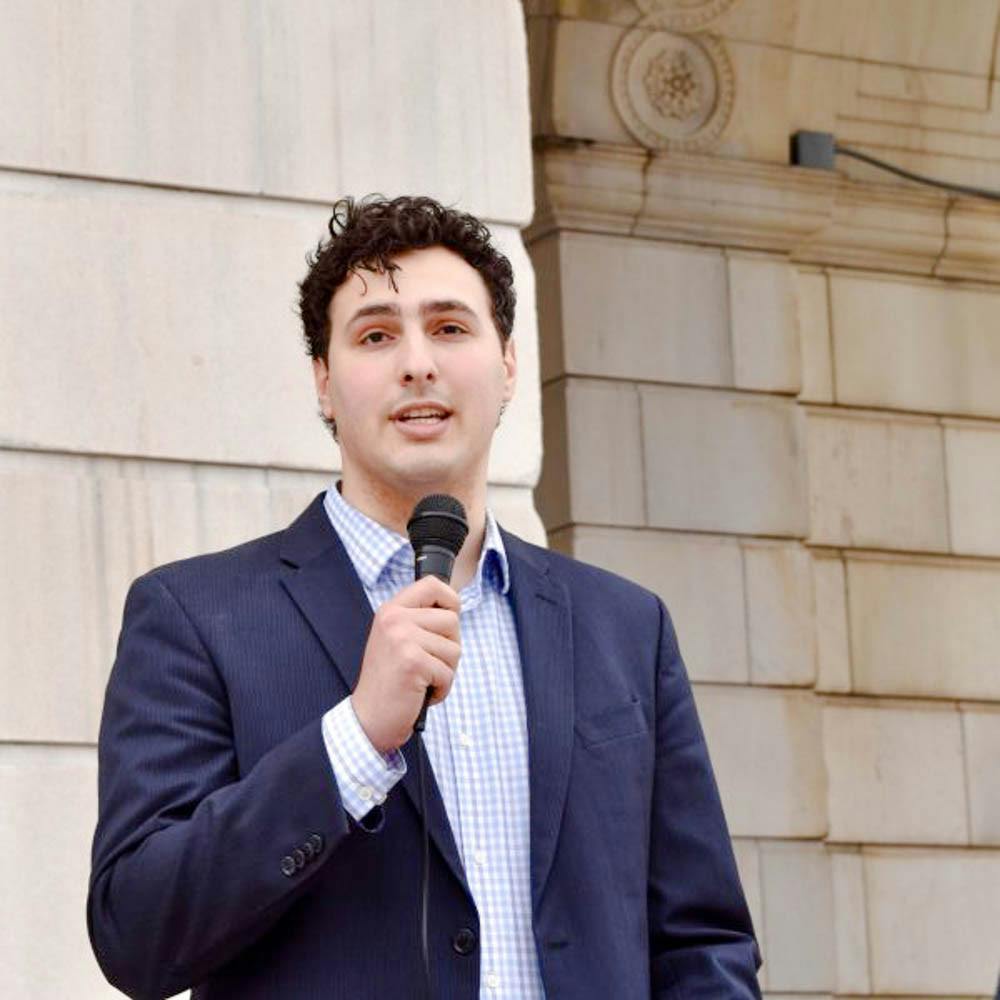Aaron Regunberg ’12 announced his candidacy for lieutenant governor Oct. 24. Challenging incumbent Daniel McKee, Regunberg sees the office as an opportunity to tackle President Trump’s agenda and represent Rhode Islanders rather than corporations, he said.
As state representative for House district four since 2014, Regunberg has seen that everyday Rhode Islanders are underrepresented. “Well-connected institutions in the state … are always present in the State House, every room, every hallway, every fundraiser, while Rhode Islanders who can’t afford a well-connected statehouse lobbyist (are) too often … ignored,” he said. Regunberg said he sees the greatest political challenge facing Rhode Island as “the way the system feels rigged both politically and economically.”
Previously, Regunberg has sponsored a bill mandating paid sick days and an increase to the minimum wage for tipped employees. In addition to introducing a single-payer health care initiative for Rhode Island, Regunberg has been active in opposing Trump's agenda. Regunberg organized a “Resist Hate RI” meeting of over 1,000 people at Hope High School in Providence and a rally outside the State House following the presidential election.
Regunberg tried to help people becoming politically active for the first time “channel their energy” into “grassroots lobbying, door-knocking and plugging into some of the different legislative campaigns — an example, paid sick days — that wouldn’t have happened if over 7,000 Rhode Islanders” hadn’t make phone calls to their legislators.
At 27, Regunberg finds it difficult to be taken seriously as a candidate, he wrote in an email to The Herald. However, he believes young people must be involved with politics. “Young people are going to be impacted by the political decisions made today for a long time, and if we’re not at the table, we’re on the menu,” he said.
His progressive campaign has elicited support from young people, including Brown students. “I heard about (Regunberg) as someone who was challenging Dan McKee … from the left, as a more progressive Democrat,” said Alex Floyd ’18, a press intern for the Regunberg campaign.
“We don’t technically endorse anyone, but it’s great to see a former alum run, as well as see a lot of progressive initiatives on the agenda for him,” said Alyssa Sanders ’20, communications director of the Brown Democrats.
As lieutenant governor, Regunberg hopes to make the role a “blowhorn” for the people of Rhode Island, amplifying voices more than a state representative can, said Rose Lang-Maso ’20, a campaign intern.
Regunberg described the Democratic primary for lieutenant governor as a race to decide Democratic priorities. Though Regunberg respects the party, “things like the state party endorsement are not going to be the biggest priority” for the campaign, he said. Instead, Regunberg’s campaign website lists his priorities as “guaranteeing access to healthcare, transitioning to 100 percent clean energy, standing up for a woman’s right to choose, defending hard-working immigrants and supporting our public schools.”
Originally from Chicago, Regunberg came to Providence in 2008 to attend Brown, where he concentrated in political science. Even as a student, his passion was to be involved in service work in Providence. “That was sort of my entry into the local community,” he said. Co-founding the Providence Student Union showed him “the impact that (young people) could have … in the decisions that impact them,” Regunberg said. This experience with community organizing ultimately convinced Regunberg to pursue politics.
Regunburg’s first experience with a campaign was working for Angel Taveras, who became Providence’s first Hispanic mayor.
Ultimately, Regunberg hopes that “Rhode Island can be a real model for the country — not just a leader in the resistance to the Trump agenda, but a model for the kind of bold, positive alternative vision that the Democratic party needs to offer if we’re going to have a shot at winning back power.” Rhode Island has the chance to lead the way in a “transition to a clean energy economy,” for instance, he said.
Nationally, “the biggest challenge right now is that … all three branches of our national government are controlled by the most radical political party that I think we’ve ever seen in this country,” he said.
The primary election will take place Sept. 12.





